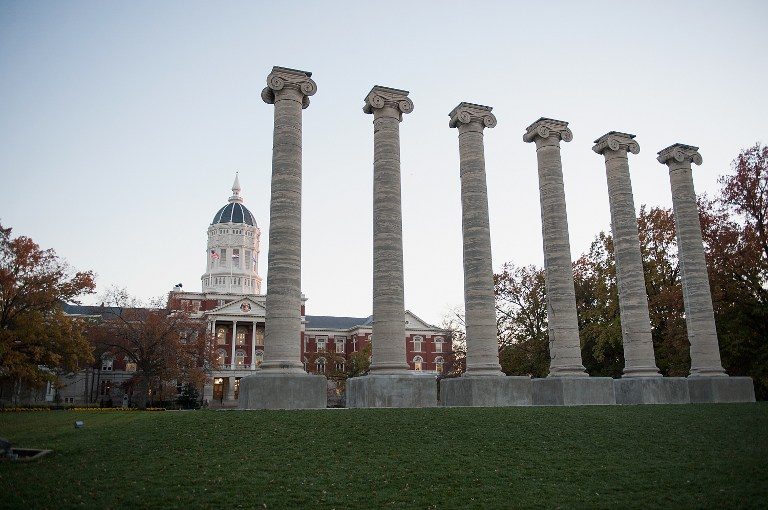SUMMARY
This is AI generated summarization, which may have errors. For context, always refer to the full article.

(I normally desist from commenting on the politics of my place of work but was drawn by the stories below because of how much they remind me of extremism back home. So here goes my two centavos worth of observations)
The stories are all over traditional and social media: American students “of color” in various universities launching successful protests to unseat administrators and shame faculty for their alleged racism.
The students’ cause have generated much support from different sectors and personalities and hence has the strong possibility of becoming a rallying issue for many who have taken local governments, private institutions, and the federal state to task for having failed to eliminate racism (especially against African-Americans) in the supposed democratic country.
Well and good… until two incidents led to the movement’s unraveling. The first was of a Yale student yelling at a professor whose wife wrote a perfectly reasonable email proposing a discussion on why people – students – have all the right to wear anything they wish to don during Halloween. In that encounter, Nicholas Christakis tried to explain to students the reason behind his wife’s message, which he argued was a part of free speech. Students responded by yelling at him, with one senior accusing him of being “disgusting” for turning Yale into an “unsafe space” for students. She then angrily asked the professor: “Who the fuck hired you?”
The second incident concerned a student photographer at the University of Missouri who was trying to do his job – cover the protest camp – but was met by a wall of hostile protestors demanding he respect “their space” they had occupied and not aid to the “hurt” that the protestors had already endured. The photographer calmly explained that not only was he trying to do his job, arguing that the First Amendment (the freedom of the press) gives him the right to do so. The activist response was to prevent him from taking photos and then pushing him out of their “space.” A fellow student journalist managed to get through the “wall,” but then encountered a faculty member who told him to stop and called “some muscle” to kick the student out.
The professor had published a lame apology for her behavior (another staff also did the same thing) and resigned her “special appointment” at the journalism school. Her colleagues and the media had however taken her to task for not only for her boorishness but also in failing to respect the freedom of the press. In the Yale case, the student who called the professor “disgusting” turned out to be not such as a good spokesperson of the oppressed when it was revealed that she came from a privileged background. It turned out also that she was a member of the committee that hired the professor to be head of the college.

Since then, supporters of the movement had to scramble to defend it, appealing to readers that they understand the “hurt” and the “trauma” that these students were going through and returning the discussion to the issue at hand: racism on American campuses.
However, the damage has been done, especially regarding trying to broaden the base of this nascent social movement. The “extremism” of a few had overshadowed the efforts of the many to reach out to other groups and expand the bases of support. It has turned off many of the faculty who are almost always sympathetic to students’ concerns (most are liberal or left-wing) and the media – two social institutions that put the premium on collegiality and the freedom to debate and discuss. The community may be divided over what the students are doing, but a majority of families from all ethnic groups will express concern over their children’s education. And like it or not, many a father or mother will be aghast at watching their children muzzle the press or curse at a teacher. This was not they moiled and saved education money for: turning the kids into thugs (as a side note, not a few have pointed out that the photographer who was coerced out of the Missouri “wall” was Asian-American).
Community alienation may also reflect a more fundamental fissure here that goes beyond the generational divide. Class. Despite evidence of an economic turnaround under President Obama a majority of American families still believe they have fallen on hard times. Forty-five million Americans (economists stay 15.1 percent of the general population) are officially poor and a large section of them come from minority families (African-Americans, 27.4%; Hispanics, 26.6%).
Decline in government social and increasing income inequalities have nurtured this general anxiety. It is a fear that, in recent times, has expressed itself politically in growing middle and working class support for leaders who anchor their campaigns on economic – and yes – class issues. Trump on the Right; Sanders on the Left. Many of them are found in organized into unions, teachers’ associations, and small-business groups to fight and defend their interests. They are also the ones most ignored by campus progressives who ironically privilege “hurt,” “trauma” and other touchy-feely issues and treat with little interest the stomach and the politics of economic trench warfare.
The “masses,” as local leftists would call these folks, are, in short, the least of these new radicals’ concerns. Anyone with a cursory knowledge of protests and rebellions would know how the latter’s fate would end. – Rappler.com
Patricio N. Abinales is an OFW toiling in the United States.
Add a comment
How does this make you feel?
There are no comments yet. Add your comment to start the conversation.